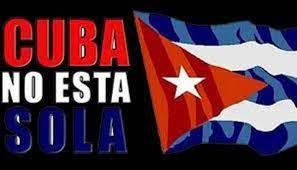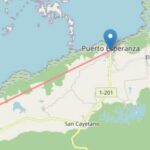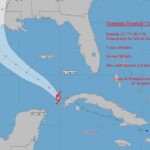Havana, Cuba: The president of Cuba, Miguel Díaz-Canel, today highlighted the global solidarity against the economic blockade of the United States against his country, despite the attacks of which some people are victims.
In his Twitter account, the president said that Cuban emigrants in North American territory, who this weekend expressed their desire to establish normal relations with the Caribbean nation, had to face manifestations of violence.
“Cuban émigrés who build bridges of lov,e faced a hateful attack on their caravan in Miami. Is there no freedom of expression for those who demand an end to genocide? A message tours the world: the blockade must end”, he wrote on the social network.
The day before, one of the promoters of the Puentes de Amor initiative, Carlos Lazo, denounced that the activity carried out in that city in the state of Florida in rejection of Washington’s siege against the Antillean Island, suffered attacks by fascist and intolerant individuals.
According to him, he told Prensa Latina, a small group of fanatics who only want blood and hatred for the Cuban people and do not want rapprochement between the two countries, “attacked our brothers as they left the caravan”.
In a video he explained that they threatened to kill and attacked one of the participants, while another was taken prisoner.
On previous occasions, activists have received attacks and threats, but according to Lazo nothing will silence the voices of the majority of the Cuban-American community that condemns the sanctions against the Caribbean nation and calls for the end of the blockade.
We have the right to express ourselves and to ask for the lifting of that siege, to demand the reopening of the Washington embassy in Havana, that the family reunification program be restored and that remittances be sent, he said.
He added that the caravans will continue and that next Sunday they will carry on their activities.
More than 15 cities in the United States welcomed this weekend initiatives against the economic blockade of Cuba, almost on the threshold of the vote in the General Assembly of Nations for a resolution against that unilateral measure, on June 23.
This policy caused the Antillean country, only in the period between April 2019 and December 2020, losses of more than nine billion dollars.





